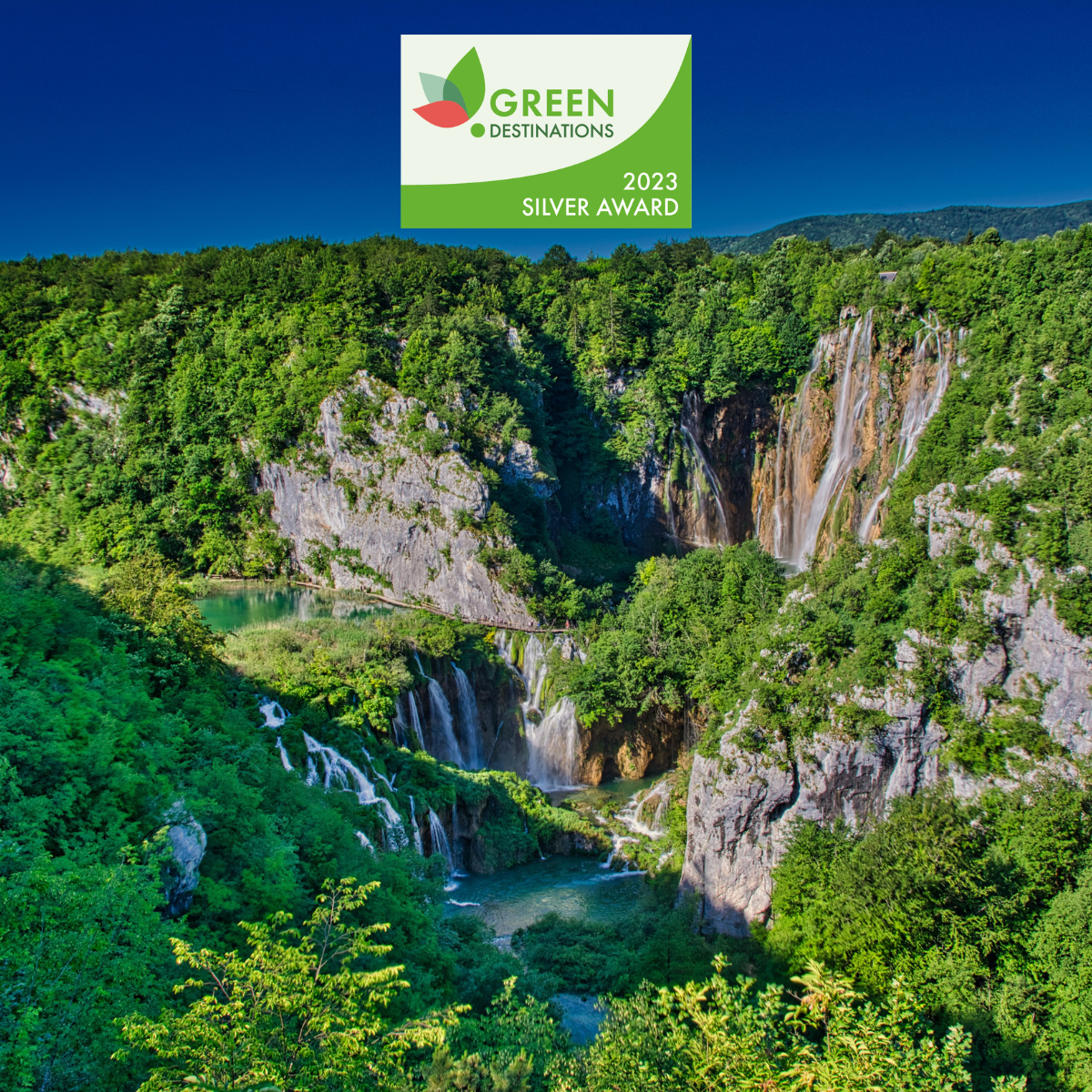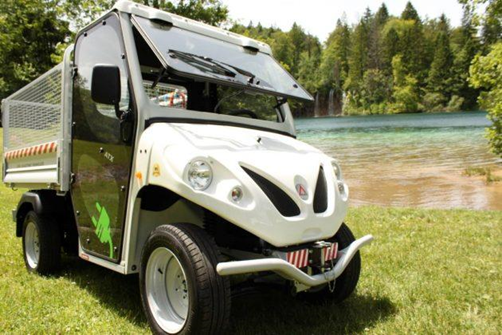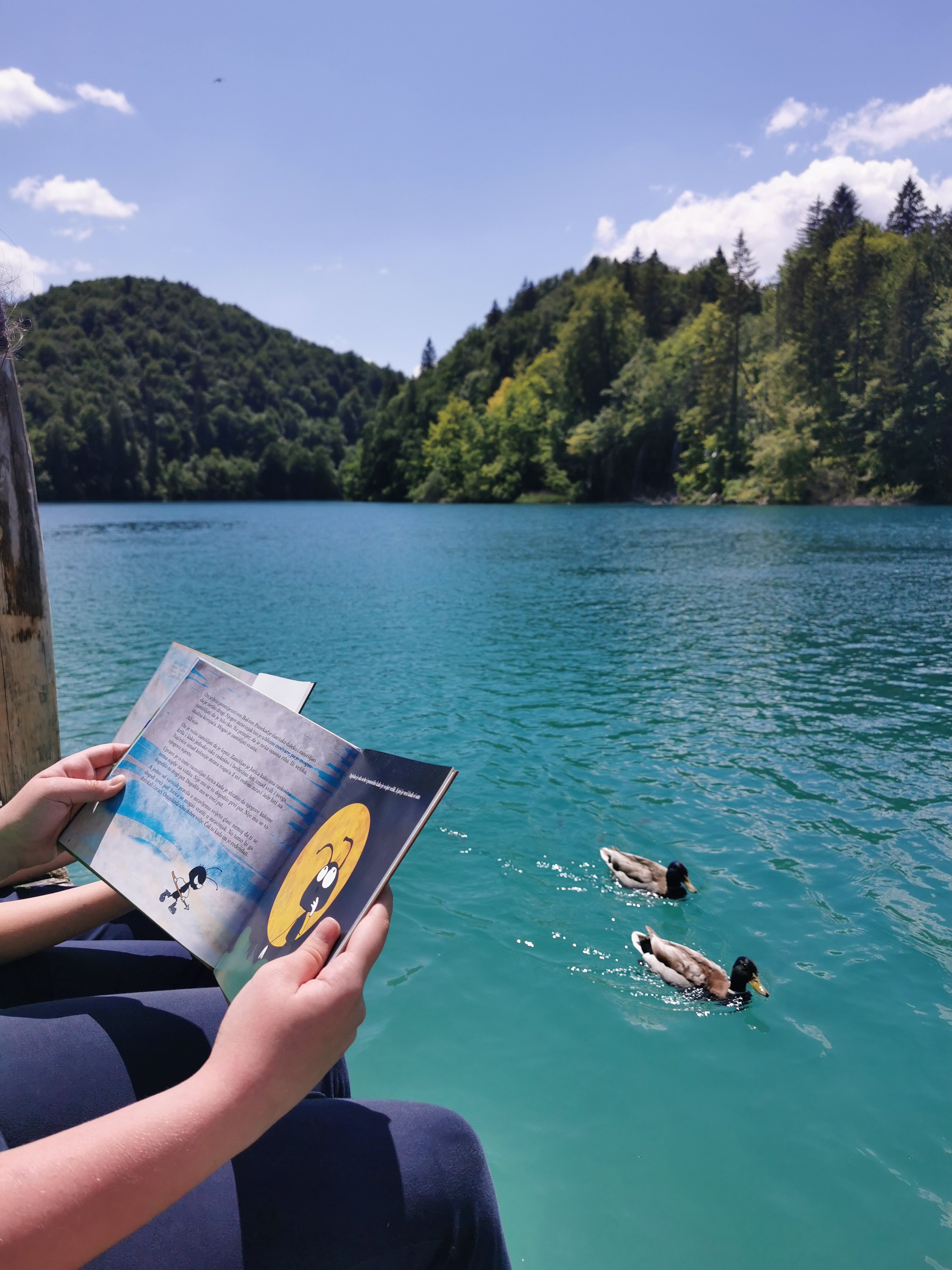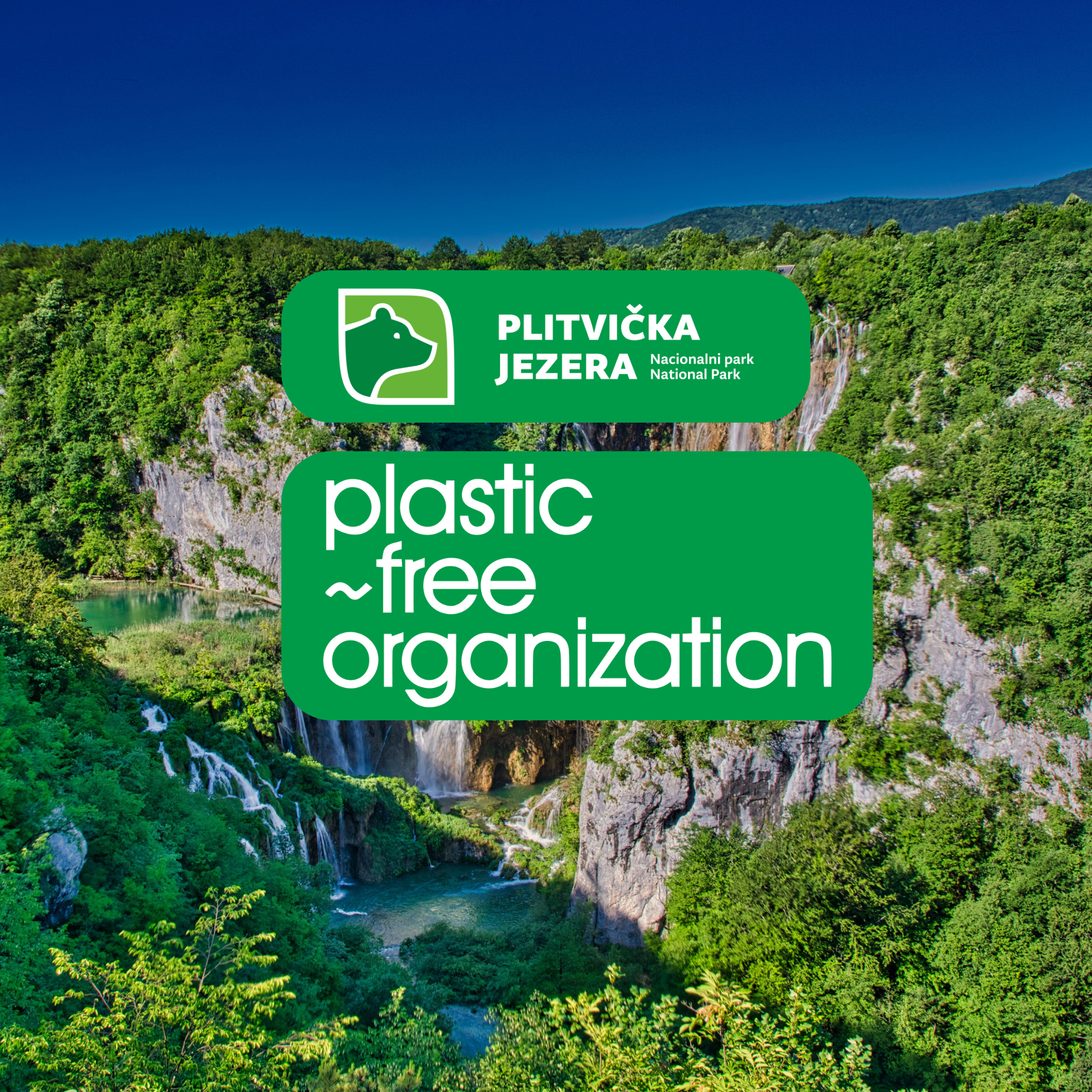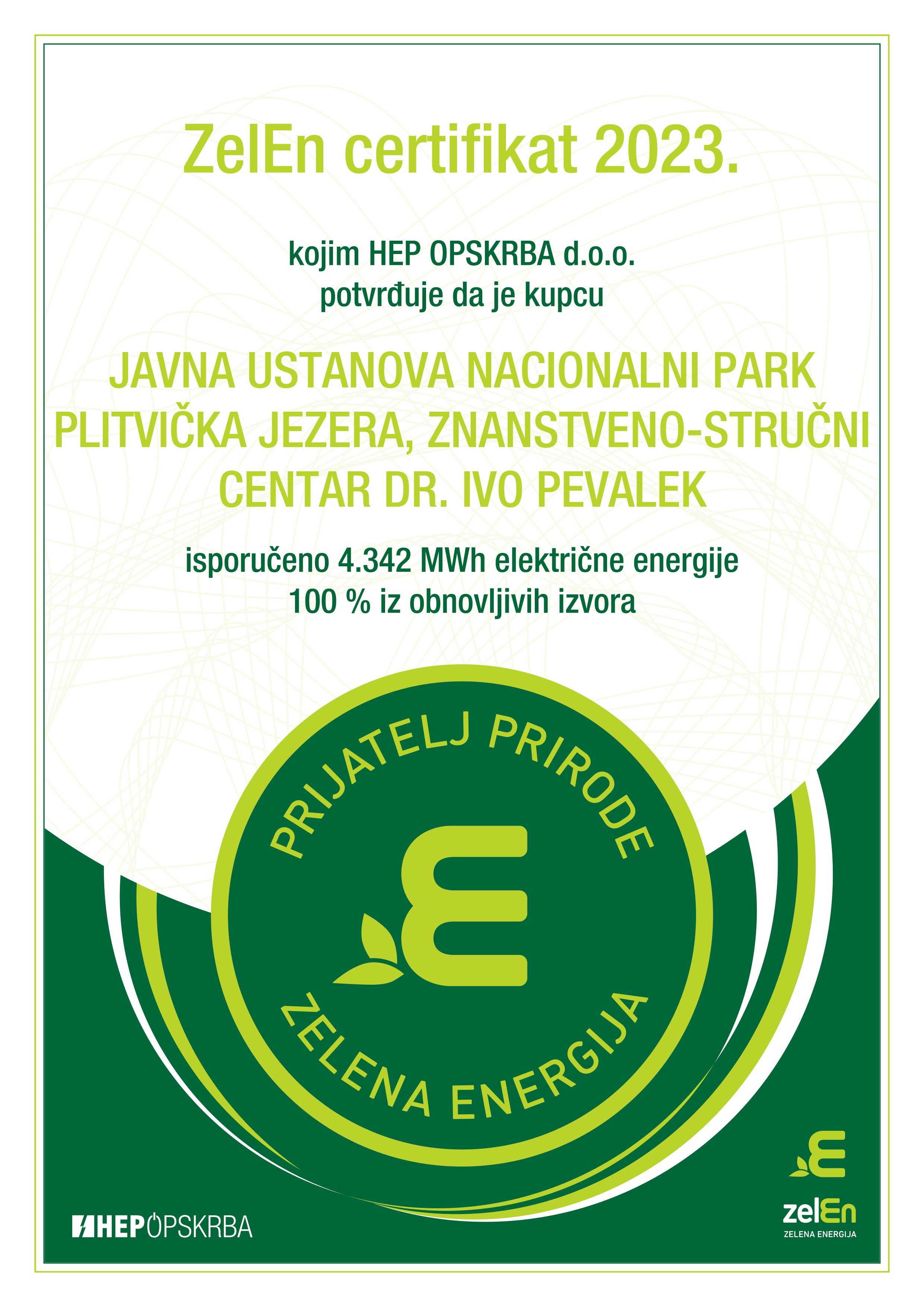Nowadays there is a lot of talk about sustainable business, but it is less common to state what is actually being implemented in practice. This extensive field, where environmental protection, social progress and economic development are intertwined, is a major challenge and commitment, especially in the context of protecting natural heritage under the protection of UNESCO. During its 75 years of existence, Plitvice Lakes National Park has gradually introduced sustainable practices and received the silver Green Destinations award for sustainability in 2023. This award is renewed every two years, so continuous work on sustainability is the only way to change the world around us, by being a good example.
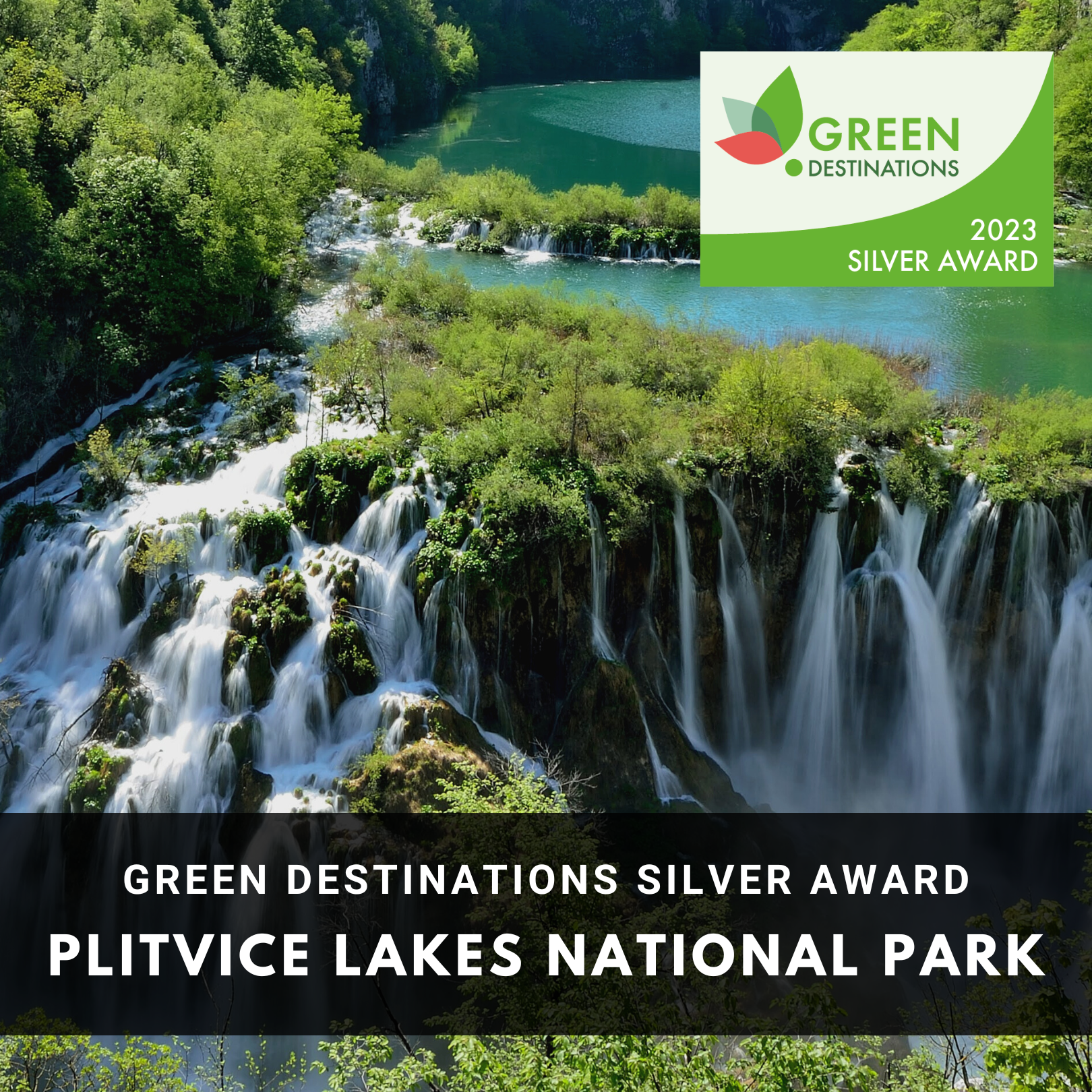
Some of the sustainable practices of Plitvice Lakes National Park are listed below.
- The Park’s infrastructure, such as the wooden paths and ship docks, has been adapted to preserve the pristine beauty of nature.
- As far back as 1976, a road passing through the Park, through the lake zone, was closed, and the first two electric boats went out on Kozjak Lake in 1977. The boats used at Kozjak Lake previously, which were wooden row boats, are still here as a type of retro attraction and visitors to the Park can take them out for a spin.
- For employees of the Park commuting from distant locations, within a radius of 60 km from their place of employment, the Park has been organising transport via its buses for many years. This reduces the number of personal cars in the Park environment and additional greenhouse gas emissions.
- Through green procurement processes, the Park has purchased electric vehicles intended to be part of visitor infrastructure (small waste and luggage transport vehicles), as well as several electric and hybrid cars for various uses.
- The Park’s Department of Protection continuously holds workshops and other training programmes for visitors to increase awareness in the field of nature protection.
- By offering packages including more overnight stays at the Park, entry tickets and access to other tourist offers in the Park’s surroundings, we encourage our guests to visit our destination for a longer period.
- Mass tourism is an environmental problem, so a system for booking a specified number of tickets per hour has been introduced, as well as a pricing policy with different daily and seasonal prices to partially relieve the Park’s lake zone.
- We implement guest surveys to learn from feedback and improve the experience of visiting Plitvice Lakes.
- Good practices have been adopted in the Park’s accommodation and catering establishments as well, where water taps with sensors were installed to reduce water consumption.
- Since 2018, we have held the ZelEn certificate that certifies that 100% of the electricity used at the Park is obtained from renewable sources. This certificate is renewed every year and is evidence that the Park procures electricity from certified power plants dedicated to conducting business with safe environmental impact.
- Waste reduction is one of the objectives of conducting business responsibly. At the Park, waste is sorted by category: paper, glass, plastics, metal, textiles, electronic waste, rubber, biowaste and bulky waste. With the introduction of biodegradable packaging in 2015, we started to phase out plastics from our business activities.
- We strive for a ‘zero waste’ business strategy by disposing of food waste in waste management facilities, and this waste is then sorted and handed over to purchasers.
- New lighting using LED technology, which consumes 50% less electricity, was introduced in 2018. Apart from the fact that the light is not dispersed in all directions, these light fixtures operate at 40% intensity at night and are more acceptable for flora and fauna.
- The behaviour expected of visitors is regulated by the Regulations on the Protection and Conservation of Plitvice Lakes National Park and is stated on our website, brochures and entry tickets. While banning behaviour such as damaging trees, littering, disturbing or feeding animals and swimming are perfectly logical for a national park, we still encounter a rule or two being broken.
There is still a long way to go, but we are slowly raising awareness among visitors and the local community of the only correct approach that will help achieve balance between people, nature and economic development.

